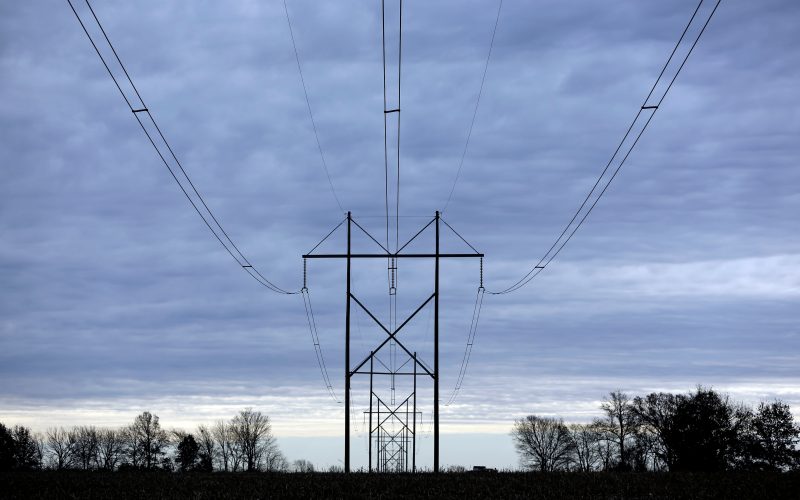In an effort to lower energy expenses, lessen the frequency of bill increases, and boost customer transparency over utility costs, state legislators are drafting legislation that would grant Oregon regulators more latitude in determining power rates.
According to the sponsors, they are reacting to Oregon’s home power consumers who are suffering from a series of rate increases that have caused utility rates in the Portland area to increase by almost 50% since 2021.
In addition, utilities like Portland General Electric and PacifiCorp may have to make expensive investments in transmission and other infrastructure as a result of the anticipated unheard-of increase in future energy demand from power-hungry data centers, which would raise power costs even further.
As the primary proponent of the bill, Rep. Nathan Sosa, D-Hillsboro, stated, “I have heard from my constituents on multiple occasions how frustrated they are with the dramatic and repeated increases in their utility bills.” The enormity of this issue is astounding.
According to Sosa, utilities have been turned off for tens of thousands of Oregonians, frequently during the dead of winter. Many more are finding it difficult to pay for these constantly rising costs.
In order to recoup their investments, utilities typically request bill increases, sometimes several times a year, whether for transmission upgrades, energy storage battery projects, or wildfire operations to remove trees and vegetation close to power lines.
At the moment, the Oregon Public Utility Commission does not take consumer affordability into account when determining rates.
The proposed law, known as the Fair Energy Act, will restructure the rate-setting procedure to put the needs of the consumers first. It would order the Public Utility Commission to consider the whole economic impact on ratepayers of a proposed rate increase or rate increase schedule.
The commission would take into account information on unemployment rates, median income, and the number of individuals getting social service assistance in the public utility’s service territory, as well as the average monthly utility bill for the calendar year and the summer months, in order to ascertain that impact.
during the winter months; the national, state, and public utility service territory average cost of living, gasoline, and utilities; and the company’s data on late balances and service disconnection, among other things.
Bob Jenks, executive director of the Oregon Citizens Utility Board, a nonprofit organization established by a 1984 ballot measure to advocate for all state utility customers, stated, “We’re trying to make the customer more centered in the rate-making process because right now, rate-making is focused on the utilities’ needs, the utilities’ cost recovery, not on the customers.”
Customers would not be harmed, according to Jenks, but stockholders would still receive just compensation since the measure would make it clear that the utility commission must take affordability into account and can set utility rate hikes at the lowest amount that is appropriate.
According to Jenks, the knowledge that such information will be included in the record should help to moderate utility requests and provide the commission with more proof of what is acceptable and affordable for consumers.
Additionally, the bill would shift any hikes away from the winter months, when energy consumption is at its maximum.
From November 1 to March 31, utilities would no longer be permitted to increase their billing rates. The plan would also restrict the frequency of rate increases by utilities, prohibiting new hikes for at least 18 months, and permit the commission to phase in rate increases if necessary.
Additionally, the law would provide regulators the authority to order a utility to finance investments using securitization, a less expensive financing method, as opposed to shareholder funds. With ratepayers securing low-interest bonds, this kind of funding can lower utility debt. However, as a result of wildfires and other natural catastrophes, it is currently only accessible when a state of emergency has been declared.
For developments like large transmission lines that would significantly affect affordability, Jenks stated that the objective would be for utilities to have access to the cheaper financing at other periods as well. According to him, it might be particularly crucial as utilities must invest heavily to handle the increasing loads from data centers.
“If there are some really large investments that we can finance at a lower cost and keep rates affordable, that’s a tool we should use in cases of really upward pressure on rates,” Jenks said. Although utilities have a lot of investments to make, it does imply that they aren’t funding that with shareholders. Therefore, removing a small portion from the table won’t significantly alter their capacity to make billion-dollar investments on behalf of their shareholders.
PGE intends to increase its investment rate by more than 20% over the previous ten years, investing more than $1 billion a year over the next five years on transmission system upgrade, renewable energy integration, and wildfire mitigation initiatives. The utility, which covers seven counties and serves roughly 930,000 consumers in Oregon, chose not to comment on the new cost.
Pacific Power stated that it would collaborate with the bill’s sponsor on the legislation, but it did not disclose its anticipated capital expenditures. About 618,000 people in Oregon are served by the utility, including roughly 90,000 in the Portland metro region.
According to a statement from utility Pacific Power, the industry is dealing with widespread affordability issues as a result of the ongoing inflationary climate and rising wildfire risk driving up prices for western utilities. We are aware that price increases may be a hardship for families in Oregon, and we are unwavering in our dedication to our communities and customers. We will keep looking for innovative methods to lessen the impact of price increases on customer bills.
“The legislation is much needed because energy costs disproportionately burden low-income households, especially people of color and fixed-income residents who already face financial and housing instability,” said Greer Klepacki, a policy and advocacy manager with the Community Energy Project. For low-income homeowners, the nonprofit organization in Portland offers weatherization and home energy upgrades.
Without enough representation in the decision-making process, vulnerable populations have been subjected to escalating energy rates for far too long, according to Klepacki. Our goal is to establish a more equitable energy system that puts affordability, equity, and consumer rights first by collaborating with Oregon CUB, lawmakers, and other advocacy organizations.
Moving rate hikes away from winter would provide them some breathing room, according to Anah Segovia Rodriguez, energy justice coordinator at Verde, another nonprofit organization in Portland that assists low-income families in installing heat pumps to lower their rates.
I’ve seen directly how families are most negatively impacted by increased energy bills, particularly during the winter when heating expenses soar, Segovia Rodriguez said. Many people already find January to be a tough month financially, so when energy companies hike prices at the very moment when people need heat the most, it makes things impossible. People in Oregon are having to decide between paying their rent, putting food on the table, and keeping their houses warm.
Additionally, the law seeks to make utility pricing increases more transparent. Even before rates are set, utilities would have to report all of their rate adjustments and how they are combined on a regular basis.
Additionally, utilities would have to disclose to consumers the specific services they are paying for, such as energy efficiency initiatives, distribution infrastructure, and wildfire mitigation.
The bill will be the subject of a public hearing on Thursday at 1 p.m.
Gosia Wozniacka discusses a variety of environmental topics, including climate change, environmental justice, and the switch to sustainable energy. You may contact her at 971-421-3154 or [email protected].
Your support is essential to our journalism. Sign up for OregonLive.com now.










